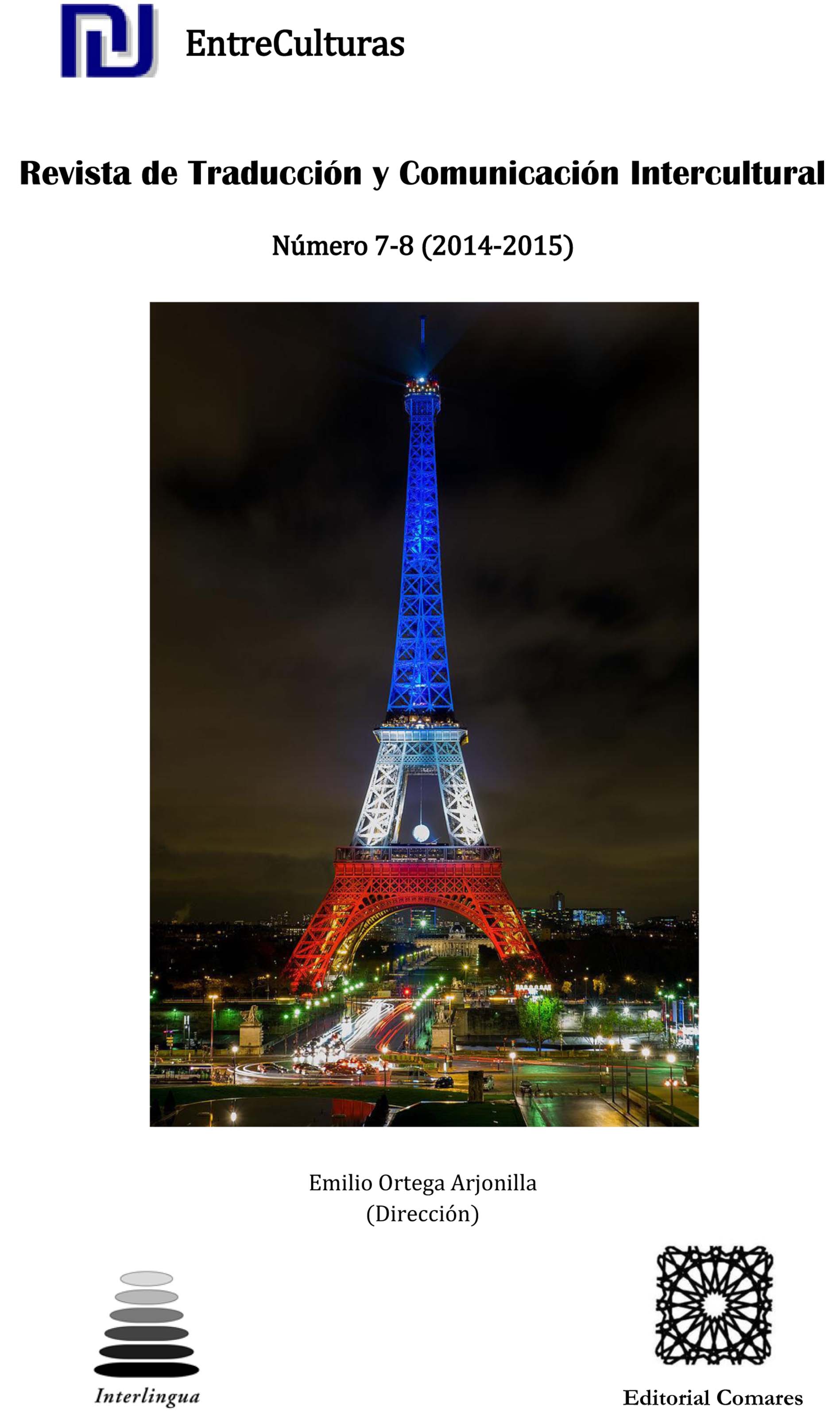LA SUSTANCIACIÓN LINGÜÍSTICA DEL PROCEDIMIENTO PENAL: EL COMPLEMENTO TRASLATIVO (I)
DOI:
https://doi.org/10.24310/Entreculturasertci.vi7-8.11352Keywords:
Court Proceeding, Linguistic Substantiation, Criminal Court ProceedingAbstract
In this article the author examines the concept of linguistic substantiation during criminal court proceedings. The focus is made on the nature of the communication that takes place in court proceedings. Its analysis draws on the relationship between the substantiation in the context of procedure and the linguistic contribution that is necessary for its further exposure and development. The author describes contexts in which linguistic resources are applied and examines the inherent qualities of linguistic substantiation that take place during criminal court proceedings.
Downloads
Metrics
References
Brennan, Colleen B. (2001). “Linguistics and the Law”. Disponible en: http://www.csa.com/discoveryguides/linglaw/overview.php
Capella Hernández, Juan Ramón (1999). Elementos de análisis jurídico. Madrid, Trotta.
Cazorla Prieto, Luis Maria (2007). El lenguaje jurídico actual. Madrid, Aranzadi. España (2011): Constitución Española. Disponible en: https://www.boe.es/buscar/pdf/1978/BOE-A-1978-31229- consolidado.pdf
España (2015). Ley de Enjuiciamiento Criminal. Disponible en: https://www.boe.es/buscar/pdf/1882/BOE-A-1882-6036-consolidado.pdf
España (2015). Ley Orgánica del Poder Judicial. Disponible en: http://www.boe.es/buscar/pdf/1985/BOE-A-1985-12666- consolidado.pdf
Etxebarría Aróstegui, Maitena (2007). “Lenguas y culturas en contacto: diversidad sociolingu?ística en Colombia” en Luque, Juan de Dios y Pamies, Antonio (eds): Interculturalidad y lenguaje II. Identidad cultural y pluralidad lingu?ística. Granada, Granada Lingvistica, 291-301.
Gonzales Salgado, Antonio (2007). “El lenguaje jurídico del siglo XXI”. Disponible en: http://www.lingua.gal/c/document_library/get_file?file_path=/portallingua/ curso/superiorxuridico/El_lenguaje_juridico_del_siglo_XXI_J._A._Gonzalez_Salgado.pdf
Lázaro Carreter, Fernando (2001). “Desde el proscenio”. El País, 1 de julio 2001.
Linares Quintana, Segundo (1998). Tratado de Interpretación Constitucional. Buenos Aires, Abeledo Perrot.
Mairal Usón, Ricardo (2012). Teoría lingu?ística: métodos, herramientas y paradigmas. Madrid, Editorial Universitaria Ramón Areces.
Ministerio de Justicia (2011). Informe de la Comisión de Modernización del lenguaje jurídico. Disponible en: http://lenguajeadministrativo.com/wpcontent/ uploads/2013/05/cmlj-recomendaciones.pdf
Ortega Arjonilla, Emilio (2012). “Hacia una caracterización de la traducción judicial desde una perspectiva académica y profesional: el decálogo de la traducción judicial” en Candel Mora, Miguel Ángel y Ortega Arjonilla, Emilio (eds.): Tecnología, traducción y cultura. Valencia, Tirant lo Blanc, 25-45.
Páez Mañá, J. (2001). “Lenguajes jurídico-documentales”. Disponible en: http://www.iberius.org/es/AisManager?Action=ViewDoc&Location=get docs:///DocMapCSDOCS.dPortal/2503
Saviano, Roberto (2007). Gomorra. Barcelona, Random House Mondadori.
VV.AA. (2007): Diccionario Manual de la Lengua Española Vox. Madrid, Larousse Editorial, S.L.
VV.AA. (2009). Diccionario Enciclopédico Vox. Madrid, Larousse Editorial, S.L. Wróblewsky, Jerzy (1988). Constitución y teoría general de la interpretación jurídica. Madrid, Cuadernos Civitas.
Downloads
Published
How to Cite
Issue
Section
License
All contents published in Entre culturas. Revista de traducción y comunicación intercultural are protected under the Creative Commons Attribution-NonCommercial-ShareAlike 4.0 International (CC BY-NC-SA 4.0) license. All about this license is available in the following link: <http://creativecommons.org/licenses/by-nc-sa/4.0>
Users can copy, use, redistribute, share and exhibit publicly as long as:
- The original source and authorship of the material are cited (Journal, Publisher and URL of the work).
- It is not used for comercial purposes.
- The existence of the license and its especifications are mentioned.
There are two sets of authors’ rights: moral and property rights. Moral rights are perpetual prerogatives, unrenounceable, not-transferable, unalienable, imprescriptible and inembargable. According to authors’ rights legislation, Entreculturas. Revista de traducción y comunicación intercultural recognizes and respects authors moral rights, as well as the ownership of property rights, which will be transferred to University of Malaga in open access. The property rights are referred to the benefits that are gained by the use or the dissemination of works. Entreculturas. Revista de traducción y comunicación intercultural is published in an open access form and it is exclusively licenced by any means for doing or authorising distribution, dissemination, reproduction, , adaptation, translation or arrangement of works.
Authors are responsable for obtaining the necessary permission to use copyrighted images.





7.png)
